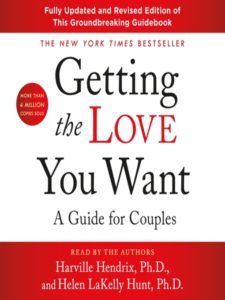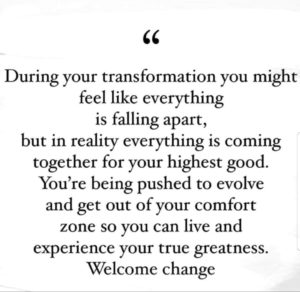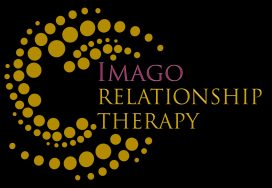You are probably aware of this, but the biggest weapon in your relationship arsenal is your ego. When it comes to egotistical love (the unhealthy kind of love), you turn to your ego to make the decisions, rather than your spirit. You might be wondering why is this a problem? The problem with this is that the ego doesn’t have any relationship skills. Instead, the ego tries to manipulate as a means of giving and receiving love. To protect yourself, your ego resorts to: withholding, arguing, fighting, sarcasm, put-downs, depression, aggression, frustration, revenge, disrespectful gestures, intolerance, blame, competition, distrust, resentment and self-doubt. Where love is concerned the ego wants you to seek love but never find it. The ego fears that deep loving will result in hurt and that, if you love too deeply, you will abandon the ego. So love virtually means death to the ego.
 For the egotistical lover, being right all the time is closely associated with feeling worthy. When your ego is out of control, you think that you are better than everyone else, that you are superior in every way. You may also feel you are unworthy and everyone else better than you. John Bradshaw once wrote, “180 degrees from sick is still sick.” There will always be someone better, prettier, smarter, faster, wealthier and someone stuck in self-pity, poorer, less smart and unattractive and has no wealth.
For the egotistical lover, being right all the time is closely associated with feeling worthy. When your ego is out of control, you think that you are better than everyone else, that you are superior in every way. You may also feel you are unworthy and everyone else better than you. John Bradshaw once wrote, “180 degrees from sick is still sick.” There will always be someone better, prettier, smarter, faster, wealthier and someone stuck in self-pity, poorer, less smart and unattractive and has no wealth.
So my point is in the bigger picture you are not better or worse than anyone else. This idea of better or worse comes directly from your ego. It is not a spiritual idea, nor does it come from the spiritual realm. You are beautifully unique and so are others. Deep romantic love from a spiritual perspective, is love that arises from the ground of your being. Not from your bank account, not from your job, not from your body, not from your parents, your IQ or how many Twitter or Instagram followers you have.
Your ego unchecked causes tremendous turmoil in your life — particularly with your significant other. Your ego is a weapon that separates you from others and it separates you from your partner because it cannot and does not allow you to go into radical, vulnerable truth-telling. Why is this?
Because your ego needs you to look and act a certain way and it needs your partner to look and act a certain way, which completely obliterates the experience of emotional safety that you need to feel permission to tell the truth as you know it, Kindly. I emphasize kindly because honesty without compassion is brutality. So telling the truth as you know it in a kind way is the art of romantic love and intimacy because you get close to each other in romantic relationships. You get upfront and close enough to see what the other person’s issues are and they get upfront and close enough to see what your issues are. So being able to practice radical, vulnerable truth-telling when you know it, with compassion and kindness is fundamental. This concept is from the purview of the spiritual; not the purview of the ego.
Two Opposites: Love and Ego
Inside you there are two opposite forces battling against one another: love and ego. The ego has an agenda that screams, “There is someone perfect out there!” Your ego wants you to design a picture perfect relationship (in your mind of course) and stick some poor sucker into your picture of what the relationship should be. To the ego, the person is not very important. But in the realm of the spirit, it is the person you are interested in. The ego just looks at how the person behaves, what they wear, how they make you feel—the ego is not interested in who the person actually is. The ego says, “I don’t want to see your weaknesses … I don’t want to see your mistakes … I don’t want to see that you are not a perfect person.”
Your ego forces you to have demands for this person, but you don’t behaviorally act them out because you know better than to do that. Basically, you are fiercely trying to get this poor sucker to fit into this set of demands that you have because it’s your idea of what you need in a relationship.
But if your need is not about the other person, or if the other person needs to be a certain way, or if your need is to behave in shitty and immature ways, and if your view of intimate relationships is outside of a spiritual perspective, your egotistical love is going to cause you plenty of destruction. And both of you will inevitably come to the conclusion that obviously this relationship is not working, so it’s best to separate.
Imago: A New View of Relationships
Imago’s view of marriage and committed relationships is completely opposite of the ego’s view. Everything we naturally do and say in relationships is 180 degrees from a spiritual perspective—it’s completely upside down.
 Why? Because your ego doesn’t want to see weakness because your weakness don’t fit into your picture of what you need in a relationship. And you don’t want to be viewed to have any weaknesses either because if someone sees your weakness you’re scared they will reject you.
Why? Because your ego doesn’t want to see weakness because your weakness don’t fit into your picture of what you need in a relationship. And you don’t want to be viewed to have any weaknesses either because if someone sees your weakness you’re scared they will reject you.
So Where’s the Love?
This is where relationships gets crazy and this is where it gets very, very crazy.
According to Harville Hendrix, “Relationships are our assignment.” The moment we fall in love we experience spontaneous enlightenment. Romantic love offers us a free sample of our natural, original wholeness, aliveness, and fullness. When you get struck by love’s cupid arrow, how else would you know to STOP?
That STOPPING is an indication that there are lessons to be learned.
When you fall in love there is also mutual projection and then reality sets in. It’s similar to a mountaintop experience—and you’ve probably had a lot of them in your life. But in the moment of falling in love, that blissful mountaintop experience, you come to see life in technicolor and you see what is possible. Then inevitably, you find yourself down off the mountaintop and the two of you are going to have to climb back up—but you have a memory of the mountaintop experience. You remember what it was like when you fell in love.
From an Imago view this OMG–I’m in LOVE!! is not a moment of mutual projection; it’s a moment of mutual reality. But what’s going to happen when you’re with the person enough, over time you will see that they are not perfect and they will see that you are not perfect. Your issues will come up and their issues will come up and the mutual projection will set in because that mutual projection comes from the belief that you are not perfect. And guess what, they are not either. Both of you are human and you will make mistakes—a lot of mistakes.
Imago theory says this is the reason you have chosen your partner–this is why the assignment was given to you—to give you the maximum opportunity to grow with someone who triggers your childhood wounds. Now your ego’s idea of the perfect relationship is opposite. Your ego’s idea of the perfect relationship is someone who does not trigger your childhood wounds. Your ego actually has you believing your wounds are healed—when in fact you just haven’t had them triggered in a while.

Your Childhood Affects Your Adult Relationships
The point of bringing up the childhood wound is that it’s something you went through. It may be something from childhood or from early adulthood–the childhood wound (or you can think of them as your buttons) is place where the wires get crossed and you go into this emotional convulsion and at that moment—and it’s usually because of something that happened in the past—you don’t really know how to open up to love and get your needs met, so you get a little nutty. And when your behavior triggers the same emotional convulsion in your partner, they get a little nutty too, which means your pictures of relationship are not being fulfilled and the situation is reminding you of your childhood pain.
So when this happens you start thinking, “Oh this relationship doesn’t feel good,” and you are having the same effect on the other person, who also is also thinking this doesn’t feel good. Your ego, ready and waiting (to make sure you don’t find love) says, “This ain’t working. This is terrible.”
But as an Imagotherapist I’m thinking this is good. This is really, really good because you are being forced to see the limits to your capacity to love. The fact that something brings up childhood wounds does not in and of itself mean something is wrong. According to Imago theory this is the purpose of relationship—this fundamental purpose of marriage. Committed relationships and marriage is a kind of hospital for your wounds—for your soul. 
Imago theory goes deeper to say, “That in the presence of the deepest love, the other person’s wounds will be brought up and your wounds will be brought up. Maybe not immediately, because during the romantic stage of love you will be able to maintain the illusion, but it’s not an illusion to think the other person is perfect. When you fall in love you see through the other person to their innocence and that is not an illusion.
In this culture, we are trained to see relationships through our ego. So when you see a person behaving in certain ways that don’t represent your idea of perfection, your ego focuses on what they are doing or not doing, and rather than being able to pierce through your ego to the innocence of this person, no matter what they are doing—you find them guilty, when in fact, they are just human.
In Imago therapy we understand all this. We understand that you will be triggered and you are going to trigger your partner. This is just going to happen. You are going to show your partner where your stuff is and they are going to show you where their stuff is, and if you both do not see what is happening in a sacred context, and do not recognize the purpose—and meaning of all this—then you are in for a world of hurt and disappointment and your ego will separate you. It may be that your bodies separate. It may be that your bodies don’t separate. You might get married and live together for the next 40 years. But this doesn’t necessarily mean you are together. Two bodies together doesn’t mean two hearts are together. Two bodies being separated doesn’t mean that the hearts are not together. But Relationships are of the MIND and experienced in the BODY.





